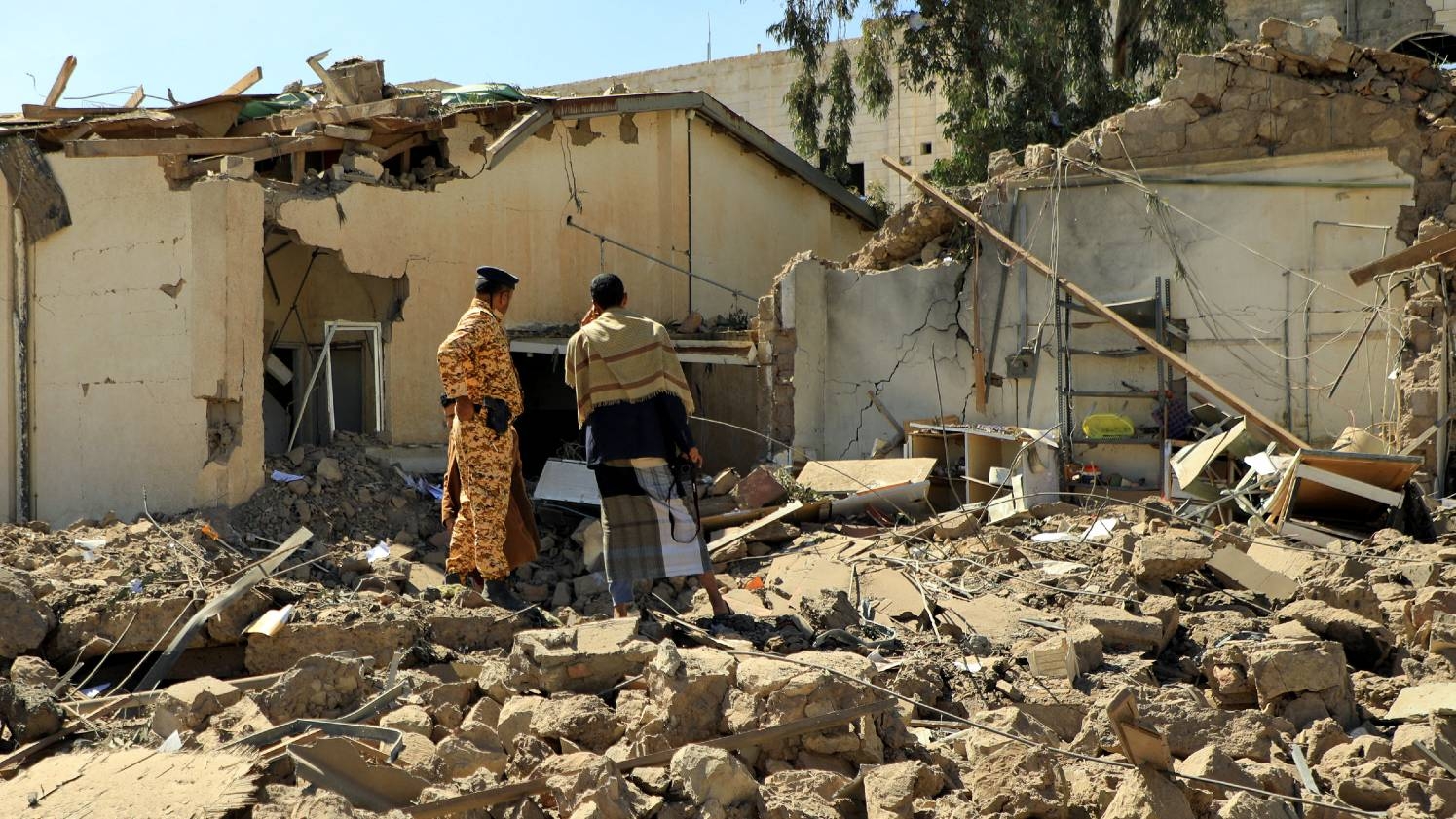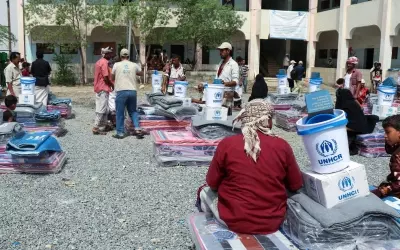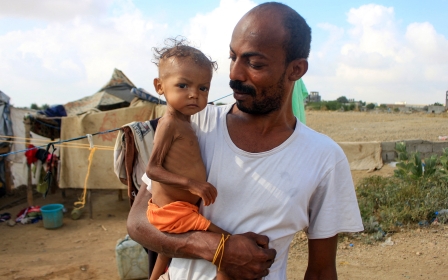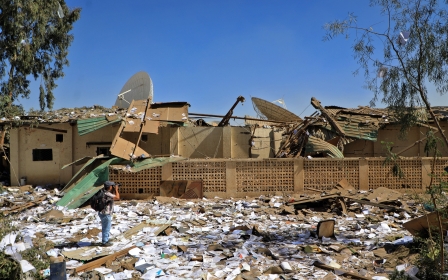Yemen: Civil society groups urge US Congress to oppose Houthi terror listing

More than 40 civil society organisations, rights groups and anti-war bodies delivered a letter to the United States Congress on Thursday, calling on lawmakers to publicly urge the administration of President Joe Biden not to designate Yemen's Houthi rebels a foreign terrorist organisation (FTO).
The letter, signed by the Friends Committee on National Legislation, Democracy for the Arab World Now, and the Quincy Institute for Responsible Statecraft, among others, comes as the White House deliberates whether to make the designation amid pressure from the United Arab Emirates (UAE) and Israel.
"While we agree that the Houthis share much blame, alongside the Saudi-led coalition, for horrific human rights violations in Yemen, an FTO designation does nothing to address these concerns," the groups' letter said.
"Rather than being a catalyst for peace, an FTO designation is a recipe for more conflict and famine, while unnecessarily further undermining US diplomatic credibility."
Last year, in the final days of former President Donald Trump's first and only term in office, the White House moved to list the Houthis as an FTO, a decision that was quickly reversed by Biden once in office.
New MEE newsletter: Jerusalem Dispatch
Sign up to get the latest insights and analysis on Israel-Palestine, alongside Turkey Unpacked and other MEE newsletters
However, in recent weeks, Yemen has seen an escalation in fighting between the Houthis and the Saudi Arabia-led coalition that includes the UAE. Last month, a drone attack by the Houthis targeted an oil facility and airport in Abu Dhabi, killing three people.
The Saudi-led coalition responded with a series of air strikes on a telecommunications centre and a jail, killing 90 people, and the Emirates quickly called on the US to label the Houthis a terrorist group.
Biden said the decision was "under consideration", and several White House meetings have reportedly since taken place to discuss the potential listing.
If the US goes through with the listing and the sanctions that accompany it, aid groups have warned it would further deteriorate the humanitarian situation in Yemen by severing access and making it illegal for any US organisations or companies to provide aid to those parts of Yemen controlled by the Houthis.
"This label would only serve to disincentivise the Houthis from engaging in the diplomacy needed to end this war, and would make it nearly impossible to deliver critical commercial goods and humanitarian aid to millions of innocent Yemenis," Hassan El-Tayyab, legislative director for Middle East policy at Friends Committee on National Legislation, told MEE.
"It's critical Congress speak out against a potential FTO designation and work to end all US military participation in the Saudi-led war and blockade, before more Yemenis are plunged into famine."
Aisha Jumaan, the president of the Yemen Relief and Reconstruction Foundation, said designating the Houthis as an FTO would "amount to an intentional starvation of 30 million Yemenis, 16.2 million of whom are at the brink of famine".
In addition to civil society and aid groups, the United Nations has also called on Washington to refrain from the designation.
According to a report by Foreign Policy, UN relief coordinator Martin Griffiths pleaded with the White House's top Middle East official, Brett McGurk, to reconsider its plans. McGurk responded by saying the US was putting the plan on hold for now, but added Washington wanted to continue to discuss what impact punitive measures against the Houthis would have on the humanitarian situation in the country.
'A counterproductive idea'
More than seven years of war have devastated the lives of tens of millions of Yemenis, with the UN estimating some 24.1 million people - or around 80 percent of the population - rely on humanitarian aid and protection to survive, while 58 percent of the population lives in extreme poverty.
The conflict erupted in 2014 when the Houthis seized the capital, Sanaa, prompting a Saudi-led intervention the following year to prop up the internationally recognised government.
It's unclear how much support the potential designation of the Houthis has among members of the US Congress.
Last month, Congressman Gregory Meeks, chair of the House Foreign Affairs Committee, said he was "looking carefully" at the issue, while Senator Ted Cruz led a group of Republican lawmakers in introducing a bill that would reverse the Biden administration's decision to lift terrorism-related sanctions on the Houthis and their leaders.
Earlier this month, a small bipartisan group of lawmakers sent a letter calling on the Biden administration to relist the Houthis as an FTO.
Still, Senator Chris Murphy, a leading advocate in Congress for ending the war in Yemen, said on Wednesday during a Twitter Live discussion that "there is no evidence" that the terrorist designation "would help anyone in Yemen, would help US security, or would help unwind this crisis".
"It's no secret we think this is a counterproductive idea," a congressional aide told MEE.
"[Senator] Murphy was vocal about the Trump administration’s designation of the Houthis on the FTO list, and also applauded the Biden administration when they took them off the list."
Middle East Eye delivers independent and unrivalled coverage and analysis of the Middle East, North Africa and beyond. To learn more about republishing this content and the associated fees, please fill out this form. More about MEE can be found here.





